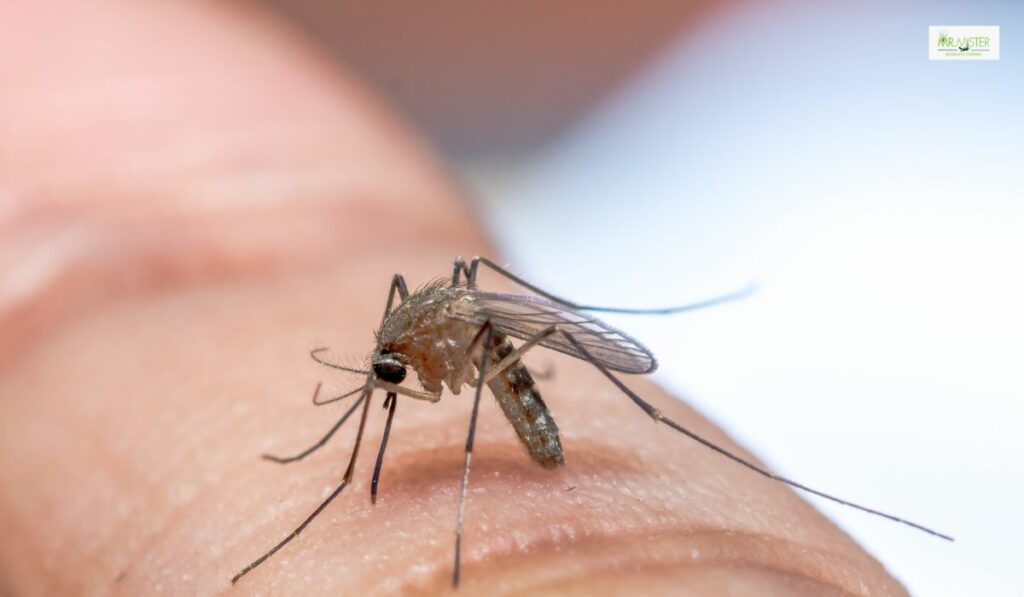Retention Pond Inspections For Mosquito Control
Serving Atlanta, Georgia and Surrounding Areas
Mosquitoes, those tiny yet persistent creatures, have been a longstanding concern for public health.
As we delve into the realms of urban planning and environmental management, the role of retention ponds in mosquito control becomes increasingly pivotal.
In this comprehensive guide, we will explore the intricacies of retention pond inspections, aiming not only to curb the mosquito population but also to foster sustainable and ecologically conscious pond management.
A Brief Overview of Retention Ponds
Retention ponds, often integrated into urban landscapes, serve multifaceted purposes.
Initially designed for stormwater management, these ponds have evolved into essential components of urban infrastructure, providing flood control, water quality improvement, and recreational spaces.
The Importance of Mosquito Control in Retention Ponds
Mosquitoes, notorious vectors of various diseases, find conducive breeding grounds in stagnant water.
Retention ponds, with their standing water, can inadvertently become breeding havens.
Efficient mosquito control, therefore, is integral to the functionality and safety of these ponds.
Understanding Mosquito Breeding in Retention Ponds
Life Cycle of Mosquitoes
To effectively control mosquitoes, it’s crucial to understand their life cycle.
From egg to larva, pupa, and finally, adult, each stage presents unique challenges and opportunities for intervention.
Ideal Conditions for Mosquito Breeding in Retention Ponds
What makes retention ponds attractive to mosquitoes?
Examining factors such as water temperature, vegetation, and nutrient levels provides insights into creating less hospitable conditions for mosquito breeding.
Significance of Regular Inspections
Preventing Mosquito-Borne Diseases
Beyond the nuisance factor, mosquitoes pose a serious health risk.
Regular inspections act as a proactive measure to identify and eliminate potential breeding sites, reducing the risk of mosquito-borne diseases.
Ensuring the Efficacy of Retention Ponds
A well-maintained retention pond not only controls mosquitoes but also fulfills its intended purpose effectively.
Inspections contribute to the overall functionality of the pond, ensuring it remains an asset rather than a liability.
Key Components of a Retention Pond Inspection
Water Quality Assessment
The quality of water in a retention pond is central to its success.
Inspections should encompass parameters like pH levels, nutrient concentrations, and pollutant levels to gauge the overall health of the water body.
Vegetation Analysis
Vegetation, if left unchecked, can transform a retention pond into an ideal mosquito breeding ground.
Inspection protocols must include assessments of vegetation density and type, guiding necessary interventions.
Structural Integrity Check
Inspecting the physical structures of the retention pond is imperative.
Damages or compromised integrity can not only impact mosquito control efforts but also pose risks to the surrounding environment and infrastructure.
Frequency and Timing of Inspections
Establishing a Routine Inspection Schedule
Consistency is key in mosquito control.
Implementing a routine inspection schedule ensures that potential issues are identified early, allowing for timely interventions.
Seasonal Considerations for Mosquito Activity
Mosquito activity varies with seasons.
Understanding the seasonal patterns enables inspectors to tailor their approach, focusing efforts when mosquitoes are most active.
Tools and Equipment for Retention Pond Inspections
Water Sampling Kits
Modern water sampling kits equipped with advanced sensors provide quick and accurate assessments of water quality parameters, streamlining the inspection process.
Drone Technology for Aerial Inspections
Drones offer a bird’s-eye view, allowing inspectors to cover large areas efficiently.
Aerial inspections are particularly valuable for assessing vegetation density and identifying stagnant water pockets.
Advanced Surveillance Systems
Incorporating technology such as surveillance cameras enhances the monitoring process.
Real-time data feeds enable prompt responses to emerging issues.
Collaborative Approaches to Mosquito Control
Involving Local Health Departments
Collaboration with local health departments strengthens mosquito control initiatives.
Shared resources and expertise contribute to more effective and coordinated efforts.
Cooperation with Environmental Agencies
Environmental agencies play a crucial role in regulating and managing water bodies.
Aligning mosquito control strategies with environmental goals ensures a balanced and sustainable approach.
Regulatory Compliance in Retention Pond Management
Understanding Local Regulations
Compliance with local regulations is non-negotiable.
Inspectors must be well-versed in the legal framework governing retention pond management to avoid penalties and ensure responsible practices.
Implementing Necessary Changes
If inspections reveal non-compliance issues, prompt action is required.
Implementing necessary changes not only avoids legal repercussions but also contributes to the overall improvement of pond conditions.
The Role of Technology in Streamlining Inspection Processes
Automated Data Collection
Automation reduces the margin for human error in data collection.
Automated systems can collect and analyze data consistently, providing a more accurate depiction of pond conditions.
AI-Based Mosquito Detection Systems
Harnessing the power of artificial intelligence, mosquito detection systems can identify and categorize mosquito species.
This data is invaluable in tailoring control measures to specific mosquito threats.
Best Practices for Mosquito Larvae Control
Biological Control Methods
Introducing natural predators or biological agents that target mosquito larvae is an eco-friendly approach to control.
These methods minimize the use of chemicals, mitigating potential environmental impacts.
Eco-Friendly Larvicide Options
When chemical intervention is necessary, opting for environmentally friendly larvicides minimizes the ecological footprint.
Sustainable choices align with the broader goals of retention pond management.
Addressing Common Challenges in Retention Pond Mosquito Control
Weather-related Obstacles
Unpredictable weather patterns can disrupt inspection schedules.
Developing contingency plans for adverse weather conditions ensures inspections remain consistent despite external challenges.
Dealing with Vegetation Overgrowth
Vegetation overgrowth not only contributes to mosquito breeding but also hinders the aesthetic and functional aspects of retention ponds.
Implementing proactive vegetation management strategies is essential.
Emergency Response Plans for Mosquito Outbreaks
Rapid Intervention Strategies
In the event of a sudden increase in mosquito activity, having predefined rapid intervention strategies ensures a swift and effective response to curb the outbreak.
Coordination with Public Health Authorities
Timely communication with public health authorities is paramount during outbreaks.
Coordinated efforts prevent the escalation of health risks and enhance community safety.
Training and Certification for Inspection Personnel
Specialized Courses for Pond Inspectors
Continuous education is crucial for inspection personnel.
Specialized courses covering new technologies, regulatory updates, and best practices ensure inspectors remain at the forefront of their field.
Continuous Professional Development
Investing in the ongoing professional development of inspection personnel contributes to the overall competence and effectiveness of mosquito control efforts.
Public Awareness and Education Programs
Engaging Local Communities
Educating the community on the importance of mosquito control fosters a sense of shared responsibility.
Engaging programs raise awareness and encourage proactive mosquito prevention measures.
Creating Educational Resources
Providing accessible educational materials equips the community with the knowledge needed to support mosquito control efforts.
Informed communities are essential partners in effective pond management.
Evaluating the Environmental Impact of Mosquito Control Measures
Balancing Ecosystem Preservation and Mosquito Control
Striking a balance between controlling mosquitoes and preserving the ecosystem is paramount.
Sustainable practices ensure that mosquito control measures align with broader environmental goals.
Sustainable Practices for Pond Management
From eco-friendly larvicides to vegetation management strategies, adopting sustainable practices minimizes the ecological impact of mosquito control, promoting long-term environmental health.
Budgeting for Retention Pond Mosquito Control
Allocating Resources Effectively
Budgetary considerations are integral to the success of mosquito control programs.
Allocating resources effectively ensures that inspections and interventions are consistently carried out.
Cost-Benefit Analysis of Prevention Measures
Conducting a cost-benefit analysis helps justify the allocation of resources.
Understanding the economic impact of prevention measures guides decision-making in favor of sustainable and effective strategies.
Future Trends in Mosquito Control for Retention Ponds
Innovations in Surveillance Technology
Advancements in surveillance technology, such as improved sensors and data analytics, will likely enhance the efficiency and accuracy of pond inspections in the future.
Sustainable Mosquito Management Solutions
The future of mosquito control lies in sustainable solutions. Innovations in biological control, eco-friendly larvicides, and community engagement will shape the landscape of pond management.
International Perspectives on Retention Pond Mosquito Control
Comparative Studies on Global Approaches
Examining mosquito control approaches on an international scale provides a broader perspective. Comparative studies identify successful strategies and cultural nuances influencing pond management.
Shared Challenges and Solutions
Mosquitoes don’t recognize borders. Shared challenges in mosquito control necessitate collaborative solutions. Learning from global experiences fosters a more comprehensive understanding of effective pond management.
Conclusion
In summary, proper retention pond inspections are crucial for controlling mosquitoes, protecting public health, and sustaining urban ecosystems. Regular assessments, technological integration, and collaborative efforts play key roles in ensuring effective mosquito control.
For more information on retention pond management, inspections, and mosquito control solutions, contact us at Mr. Mister mosquito control. Together, let’s create healthier and more resilient urban environments.
FAQs
Why are retention ponds essential in urban landscapes?
Retention ponds serve multiple purposes, including stormwater management, flood control, water quality improvement, and recreational spaces, making them crucial components of urban infrastructure.
How do retention ponds become breeding grounds for mosquitoes?
Stagnant water in retention ponds provides an ideal environment for mosquitoes to breed. Efficient mosquito control is essential to maintain the functionality and safety of these ponds.
What is the significance of regular inspections in retention ponds?
Regular inspections act as a proactive measure to prevent mosquito-borne diseases by identifying and eliminating potential breeding sites. They also contribute to overall pond functionality.
What components are assessed during a retention pond inspection?
Inspections cover water quality assessment, vegetation analysis, and structural integrity checks to ensure the health of the pond and effective mosquito control.
How can technology streamline retention pond inspections?
Automation, drone technology, and AI-based mosquito detection systems enhance data collection and analysis, providing a more accurate depiction of pond conditions.
What collaborative approaches are effective in mosquito control?
Collaboration with local health departments and environmental agencies strengthens mosquito control initiatives, aligning strategies with broader environmental goals.
Why is regulatory compliance crucial in retention pond management?
Compliance with local regulations is non-negotiable to avoid penalties. Implementing necessary changes based on inspection findings contributes to overall pond improvement.
How can communities contribute to effective mosquito control?
Public awareness and education programs engage communities, fostering a sense of shared responsibility. Informed communities become essential partners in effective pond management.
What is the importance of balancing ecosystem preservation and mosquito control?
Sustainable practices, from eco-friendly larvicides to vegetation management, ensure a balance between mosquito control and preserving the ecosystem for long-term environmental health.
* Schedule a Free Mosquito Control Consultation – 404-941-0720 *
* Guaranteed Results * 100% Biodegradable * Locally Owned



